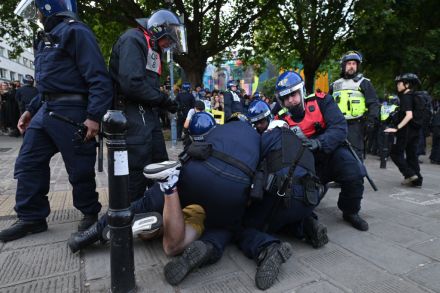The ‘community cohesion’ concept explains confusing police tactics
Merseyside police were very keen to rule out the Southport attack as ‘terrorism-related’. This was despite subsequent remarks from the Home Office that counter-terrorism police were still assisting the investigation. That muddled explanation will fall on deaf ears. Whether this turns out to be an act encompassed within the dry legalistic definition of terrorism, the dead are still dead. Why are the police in the firing line this weekend? Why have they not been more forthcoming originally on details? Could a quicker reaction have dampened the riots we have seen over the past few days? One reason that the police strategy looks so baffling could be Merseyside’s concern that nebulous





















